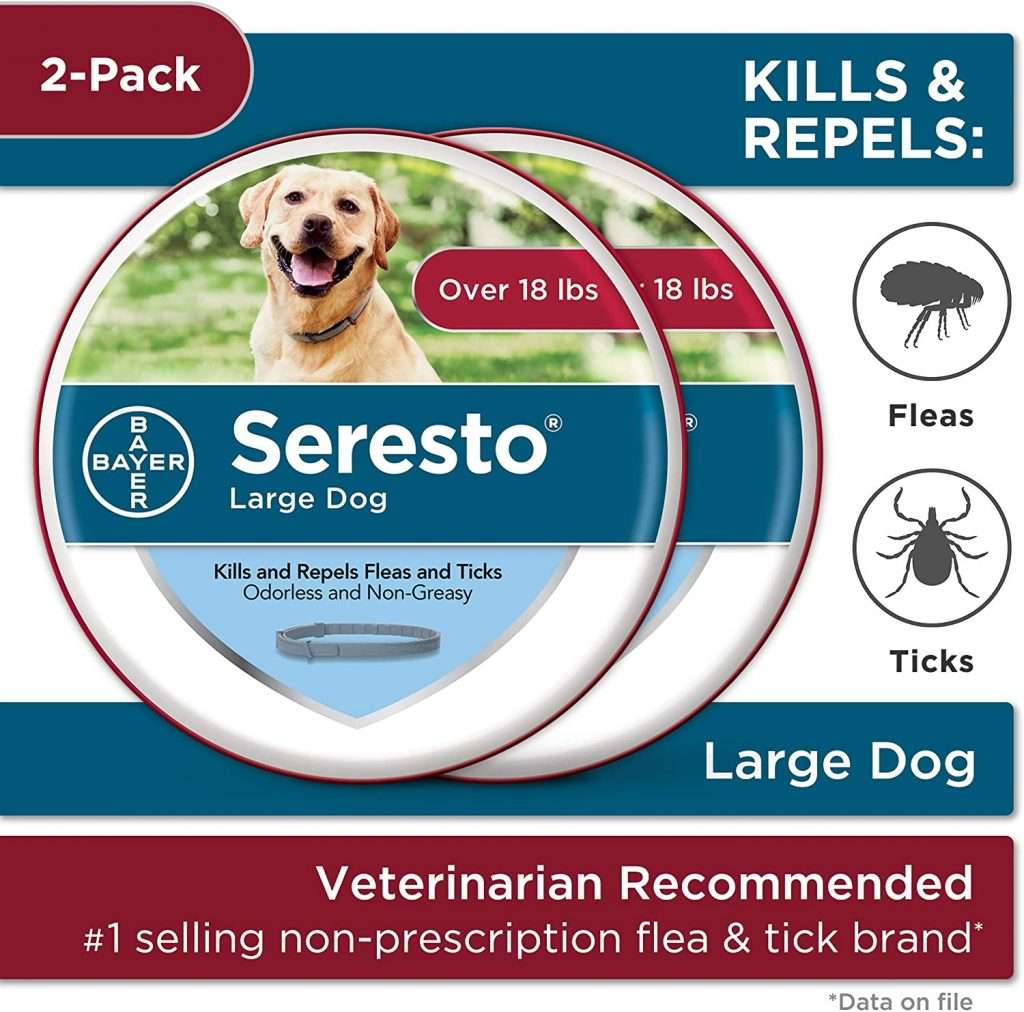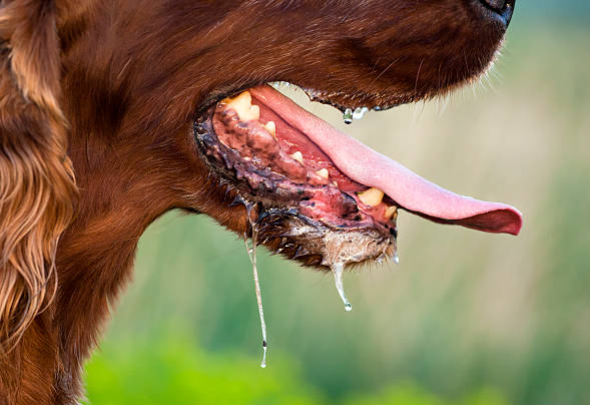
Dogs definitely are man’s best friend. We love to play with them, take them out on walks, feed them good meals, and just about everything in between. Our dogs are even always considered members of the family, which is why it tends to bother us when they’re not feeling in tip-top shape, especially when they aren’t eating or drinking.
Lethargy is one of the most common reasons why your dog may be feeling lethargic. Coupled with them not eating or drinking, this spells a recipe for disaster and one that makes you worry.
There are different reasons why your dogs may be feeling lethargic. Get to know what these are through the help of this article and what you can or should do when this happens.
What is Lethargy and Why Should You Pay Extra Attention to Your Pooch
Lethargy can simply be defined as a state of fatigue that relates to having a lack of energy and even sluggishness. This can also mean being in a state of unresponsiveness or having a lack of motivation to participate in activities where exerting energy is required.
A lethargic dog may not be up for their daily activities, such as getting out of bed, walking, or playing with you. At times, your pooch may even lose interest in food or drinks, making you worry about their health and wellbeing. You might find your dog being tired or groggy, or sluggish even.
While lethargy may be a common symptom in dogs, this may be a cause of concern as being lethargic is tied with other problems, such as illnesses, medical conditions, pain, and the like. Because of this, it’s important to understand why your pup is acting like this in the first place.
Reasons Why Your Dog is Acting Lethargic
As previously mentioned, different ways can account for your precious dog feeling and acting lethargic. Below are some of these.
-
Medical Condition, Illness, or Infection
One of the most common causes as to why your dog can become lethargic is that they are either sick, are dealing with an infection, or they simply have a medical condition. Some of the more common infections that you may come into contact with, and by extension, that can harm your pooch are distemper, heartworm disease, kennel cough, and the dreaded parvovirus.
Parvovirus can present itself through diarrhea, vomiting, and pain in the abdomen. On the other hand, kennel cough can manifest itself in your dog through a dry, honking cough. Meanwhile, a distemper can cause fever and discharge in various parts of the body, while heartworm disease can give your dog fever, depression, and even weakness. Of course, all of these make your dog feel lethargic.
-
They Have Metabolic Diseases
Apart from those aforementioned, you also have to look out for other diseases that might be affecting your pooch. These include heart problems, diabetes, hypoglycemia, and liver problems.
As each of these diseases progresses, the higher the chance that your dog will worsen over time, making them lethargic. They will also lose appetite and have no desire to drink or help themselves when this happens, leading to weight loss due to changes in their appetite.
Those with dogs suffering from metabolic diseases may find that their doggie may have a hard time breathing and may even become weak depending on what they’re dealing with. They’re Taking Medication
Various medications can make your dog lethargic. You might notice them becoming weak and having a lack of appetite when they are put on a new medication and this may be due to the drug not agreeing with their stomach. Some medications, on the other hand, may just be suppressing their appetite.
Certain treatments can make your poor pups feel nauseous, while some can even give stomachaches, such as antibiotics. This may cause your dog to steer clear of eating or drinking in the meantime, so when this happens, be sure to consult their vet right away.
-
Your Pup is in Pain
Another tell-tale sign that your dog is in pain is when they’re acting lethargic and they don’t have the energy or motivation to play with you or go out. These doggies may not be able to tell you what they’re feeling right away, so you might want to observe any stiff movements or whining that comes with these.
If you notice your dog avoiding their regular food, they could be experiencing some dental or oral pain. This can be a sign of infected or rotten teeth that has taken years or even months to fester. During this time, your dog might have a preference for only eating soft or canned food and being affronted by dry food.
-
They Have Social, Emotional, and Behavioral Issues
Big changes can affect your dog as well. Whether it’s experiencing the death of an owner or loved one, or even of a fellow pet in the home, moving from one location to another, and the like, these major events could also have a toll on your dog.
Your dogs also experience stress and anxiety, even fear, in their lives. Loud noises or new people in the house, as well as traveling, can trigger such emotions. There are, however, dogs that are relatively picky with what they eat in general, while there are those that are particular with the surroundings they have while eating or drinking.
At times, these events can be traumatic and draining on your pooch. As such, it’s possible that their eating and drinking habits can change during this time. In most cases, their lethargic demeanor, as well as their normal eating habits, can resume in no time.
-
Your Dog is a Senior Dog
As your dog grows older, chances are they’re most likely to have less energy. They may not be as eager to eat with old age and that’s because their activity level may have dropped as well, but this is nothing to worry about.
The ageing process affects how senior dogs not only eat and drink but also their overall activity level. Your senior dog may need more sleep as they get older, leading them to become less active.
At times, older dogs can also suffer from certain conditions such as osteoarthritis. This affects them in that this condition restricts movement and makes your pup feel pain in their joints. Obesity through age can also make your dogs feel more lethargic, which is why they may prefer to sleep and rest more often.
Natural Dog Supplements
There are many amazing calming dog supplements out there that are made with natural ingredients like valerian root, chamomile, and passion flower to give your dog when they feel lethargic or depressed.
Valerian Root
Valerian root is a flowering plant that is native to Europe and Asia. It has been used for centuries as a medicinal herb to treat a variety of ailments such as insomnia, anxiety, and headaches. Valerian root is also known for its calming properties, which is why it is one of the main ingredients in this valerian dog supplement.
Chamomile

Chamomile is another ingredient in the calm dog supplement mentioned above. Chamomile is a dried flower that belongs to the daisy family. Chamomile has been used for centuries as a natural remedy for insomnia, anxiety, and stomach problems. Like valerian root, chamomile is also known for its calming properties. This makes it the perfect ingredient for this amazing calm dog supplement.
Passion Flower
Passionflower is a climbing vine that is native to the Americas. Passionflower has been used for centuries by Native Americans as a medicinal herb to treat a variety of ailments such as insomnia and anxiety. Passionflower gets its name from the fact that it was once used by Christian missionaries to treat people who were suffering from religious hysteria. Passionflower is also known for its calming properties and has been shown to be effective in reducing anxiety in both humans and animals.
What You Should Do When Your Dog Isn’t Eating or Drinking?
Below are some more ways you can meet their needs and nurse them back to health.
-
Bring Your Pet to the Vet
Before anything else, consulting your dog’s vet is imperative. This is particularly essential if you suspect that your dog is in pain or there has been a drastic change in their appetite, such as refusing to drink or eat. Remember that your dog should never go a day without drinking water.
Your vet is well-versed in diagnosing and treating your dog. These professionals will conduct a checkup to determine what’s causing the lethargy and the lack of appetite in your dog.
So, if you are extra concerned about the way your pooch is acting, taking them to the vet is the right thing to do. It’s always to be safe than sorry, especially when it involves your best friend. Your vet can provide you with the assistance you need to help your pupper get over their lethargic stage.
Although there are some cases where you can wait before bringing your pet in, such as when they’re still responsive to you while exhibiting signs of lethargy, if they are presenting with other illnesses or symptoms, going to the vet for an emergency visit certainly warrants it.
-
Find Other Treatment Methods
If your veterinarian has finally diagnosed your dog with lethargy, you can try and explore other methods out there. Physical therapy can be a great way to address their pain, especially when coupled with any medications that the vet has prescribed.
In addition to this, getting laser therapy or acupuncture are also other options you might want to consider. If your dog is obese, getting to the root of the problem is critical as this can affect other aspects of your pup’s life.
-
Try Manually Feeding Your Dog
One of the home remedies you can do to get your dog to slowly eat again and regain their appetite is to manually feed them. Also known as hand-feeding, this helps dogs who are anxious, shy, or fearful to get more comfortable with who’s feeding them, and by extension, by eating their meals properly.
You can also try giving your dog other types of food. This may take some time as you’ll be figuring out what type of food they like best, but experimenting with different types of dog food will give you an idea of what works for your pooch.
Try mixing up some wet or canned food with some kibble, reducing the wet food little by little, just until your dog is completely accustomed to eating their dry food alone. You may also want to wean your dog off of the treats.
-
Keep Them Hydrated
Your dog’s nutrition won’t be complete without water. Giving them access to fresh water is important as this keeps them hydrated, lessening the risk of becoming lethargic or reducing their sense of lethargy altogether.
If you notice that your pooch is lethargic, you can start by leaving bowls of water around the house to give them access points to fresh water wherever they might be. You can even give them ice chips on a hot day to cool them off.
-
Make Your Dog Feel More Comfortable
If your dog has been from a high-activity weekend or has overexerted themselves from running, walking, or playing, chances are they’re really tired. Given this, it’s only right that they have some time off for some relaxation. This way, they can bounce back and be on their game again. During this time, make sure to steer clear of taking long walks or even strenuous exercises.
Senior dogs, in particular, need more help in this area, which is why asking your vet for some tips to help them handle their transition can be a good thing. Whether it’s giving them more time to rest or adding some cozy pillows to their space, making your dog feel comfortable should be a priority in this case.
The Bottom Line
Lethargy in dogs can be a cause of concern, especially when they aren’t eating or drinking. With different factors affecting their lethargy, consulting a veterinarian is the answer to your problem. Through the expert help of your vet, you can get your pet the care they require as soon as possible.









